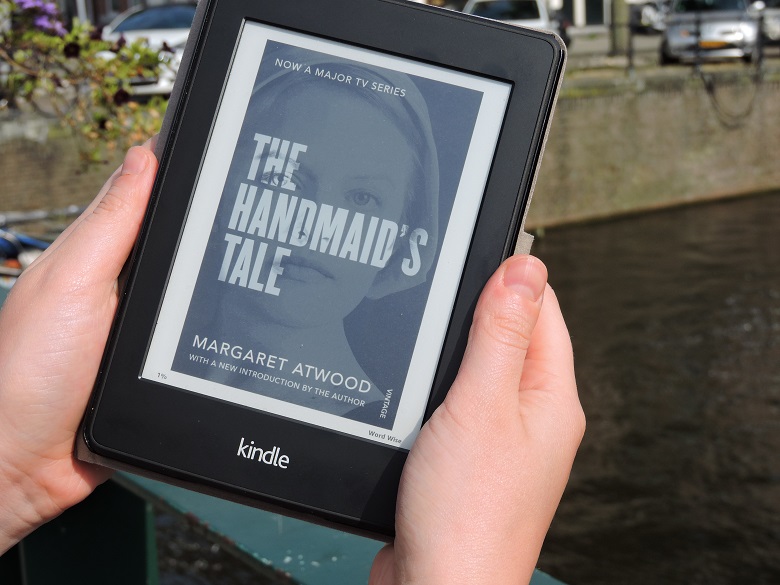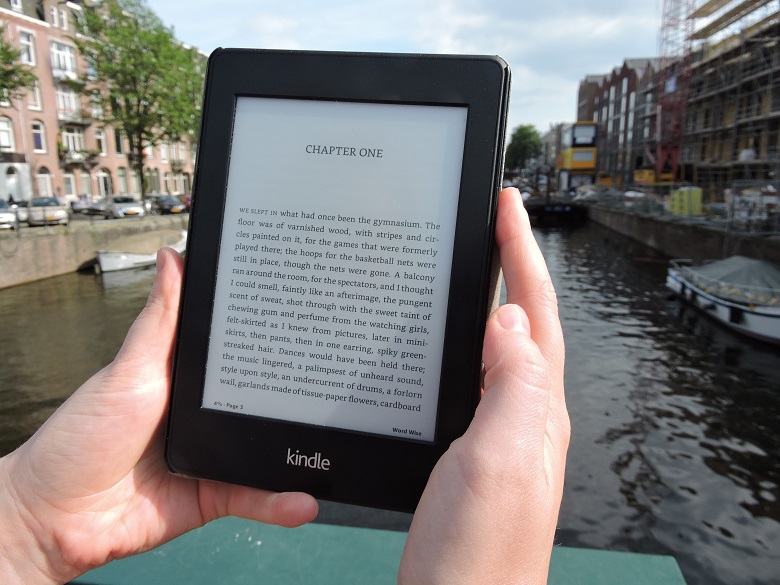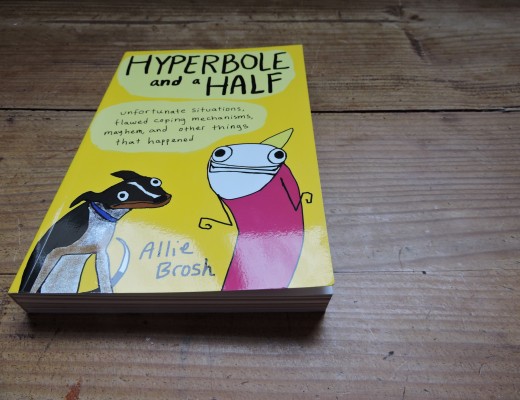I have been wary of The Handmaid’s Tale for at least 5 years, if not more. The book had been on my to-read list for what seems like forever, but for some reason I had imagined the story to be a horrific display of violence that I would find too hard to get through.
It turns out that in this case, fear is worse than the danger itself. However, that is far from being the case in Gilead, the fictional state in The Handmaid’s Tale is set and where a Christian totalitarian regime has replaced the U.S government. Margaret Atwood’s novel was a gripping read that I am very excited to finally tell you about!
Summary
In the Republic of Gilead, humankind is dwindling out due to an unsolved fertility problem. There are few woman still capable of giving birth to healthy babies, and so they have become a treasured resource that the government assigns to its well-placed officials. These women are called Handmaids, and their order is simple: get pregnant by the man you have been assigned to, give birth to a healthy baby, and hand it over immediately to the man’s wife so she can raise it as her own. Do this, and you will not be shipped off to the Colonies to clean toxic waste. You are not no longer permitted to read, write or take a walk by yourself. This is the price to pay for your protection by the Republic of Gilead.
What I thought of The Handmaid’s Tale
I made up for putting off this book for so many years by reading it all over the course of a single weekend. It was a real page turner, even though the action was fairly slow. The writing is simple and easy to follow, and just mysterious enough in the beginning that you find yourself desperately wanting to understand the events that led up to the dystopian society Offred, Handmaid and main character of the book, finds herself living in.
As it is often the case in dystopian novels, the characters use a specific kind of rhetoric that translates the ideas and regime forced upon them. Woman are blamed for everything that happens to them and are reminded of how, in the past, the State did not protect them and they would fear going out at night alone. Limited freedom is presented as a kind of solace:
“There is more than one kind of freedom,” said Aunt Lydia. “Freedom to and freedom from. In the days of anarchy, it was freedom to. Now you are being given freedom from. Don’t underrate it.”
What I found so shocking about that quote is how logical it feels in the context of the story. The ideas in the novel are strong and insidious: I found myself slipping into the mind-set of the novel and regretting not enjoying my freedom more, while also enumerating all the dangers of the modern world we live in.
Offred’s memories of her past life are heartbreaking and frightening as her life could so easily have been any of ours: she read the newspaper on Sunday mornings, went to college and wrote essays at the last minute, lugged her dirty laundry to a public laundromat… It was downright creepy to read descriptions of everyday moments that I have been through thousands of times, taking them for granted just as Offred and her friends and family did before their rights were taken away from them. This is a strong reminder that our rights are never unalienable and we must fight for them as soon as they are threatened. The fact that the story is so plausible makes The Handmaid’s Tale even more shocking. The methods of totalitarian control used in the book have been successfully used before, and even handmaids were once used for reproductive purposes, according to the Bible.
Some important elements of the novel go unexplained, and this is a frustrating but realistic part of the book. This novel is an exercise in empathy — women, men, the rich and the poor are all forced to do things they don’t want to — as well as a slap in the face that reminds you of everything you take for granted. I now intend to watch the TV series and compare it with the book! Have you read or watched The Handmaid’s tale? What did you think?





